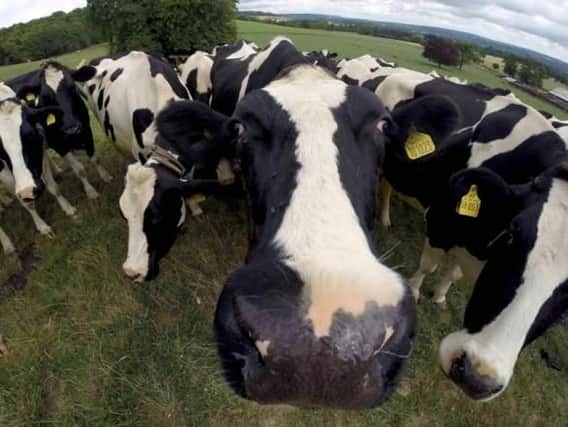Baroness Anne McIntosh seeks assurances over Brexit risk to food safety alert system


Baroness Anne McIntosh will raise the issue around the scenario, which could be brought about by a no-deal Brexit, in the House of Lords.
As a member of the EU, Britain benefits from being part of what is known as the Rapid Alert System for Food and Feed (RASFF). It acts as a live early warning system and typically sees about 10 alerts shared between EU member states every day.
Advertisement
Hide AdAdvertisement
Hide AdAlerts detail the very latest, breaking health and food contamination issues that are developing across the EU.
Should the Government agree a Brexit deal with the European bloc, the UK would continue to benefit from access to RASFF during an implementation period, but that may not be the case in a no-deal Brexit situation.
Baroness McIntosh of Pickering, said: “In the event of a no deal, the Government aims to negotiate full access to the RASFF network, being mutually beneficial for the EU and UK to continue this vital data sharing on food safety. However, this is a matter of negotiation and agreement with our 27 EU partners.”
She will tell the House: “Every ten years or so, there is a food safety issue: BSE in the 1990s; foot and mouth in the early 2000s and horsegate in 2013. So ensuring public confidence in our food, whether home grown or imported, is of paramount importance.”
Advertisement
Hide AdAdvertisement
Hide AdIn a series of questions which she said had attracted cross-party support, the Baroness will also outline her disappointment that the Government has yet to share a schedule of proposed tariffs on food imports with the farming industry.
If the UK fails to agree a deal with the EU, tariffs on imports and exports will be dictated by World Trade Organisation rules and could mean consumers face higher food prices.
To keep costs down, it has been widely reported that the Government is considering cutting import tariffs, by between 80 and 90 per cent.
Some imports could retain higher tariffs however in order to protect sensitive industries and Environment Secretary Michael Gove assured farmers at the National Farmers’ Union’s (NFU) annual conference a fortnight ago that there would be “protections for sensitive sections of agriculture and food production”.
Advertisement
Hide AdAdvertisement
Hide AdTariffs would apply to imports of beef and lamb, he said, as he identified livestock farmers as being among the most vulnerable in a no-deal scenario.
Those tariffs are considered to be essential by the farming industry to protect British food from being undercut by cheaper food products.
Mr Gove had also said the Government would publish details of the proposed tariffs, and in the Lords today, Baroness McIntosh will question this.